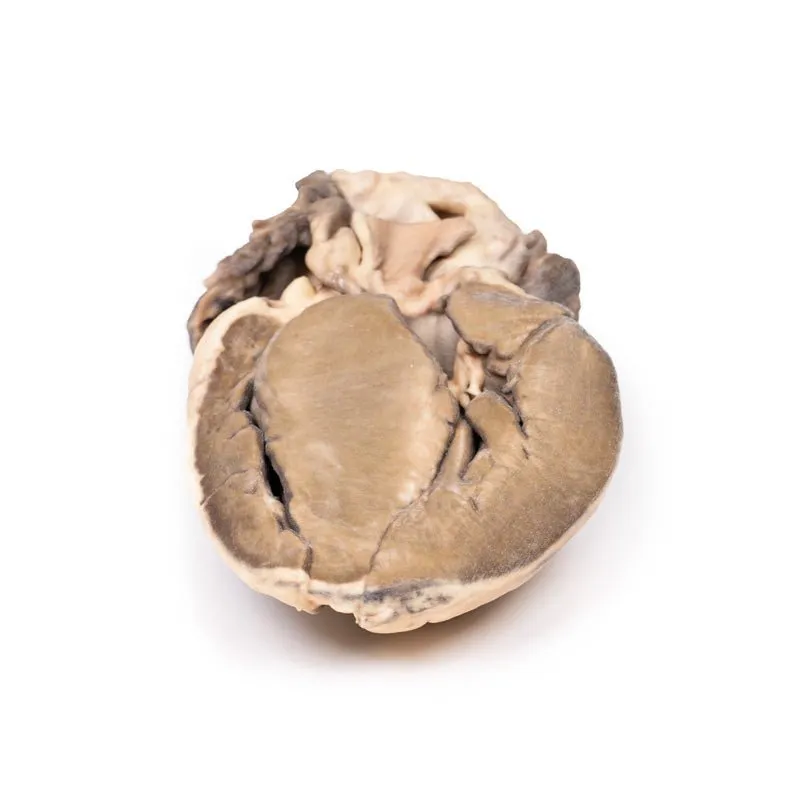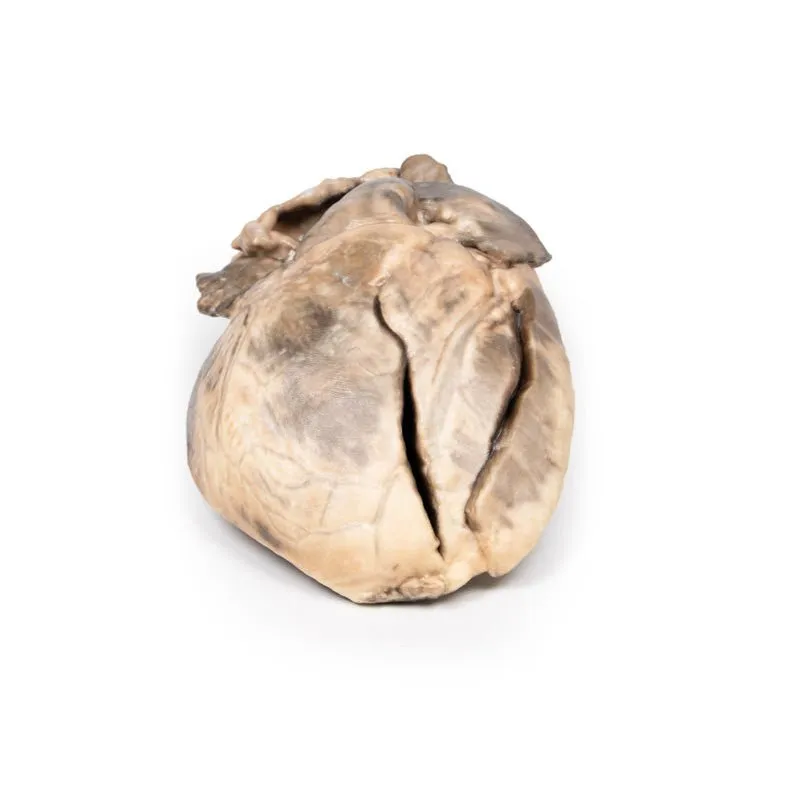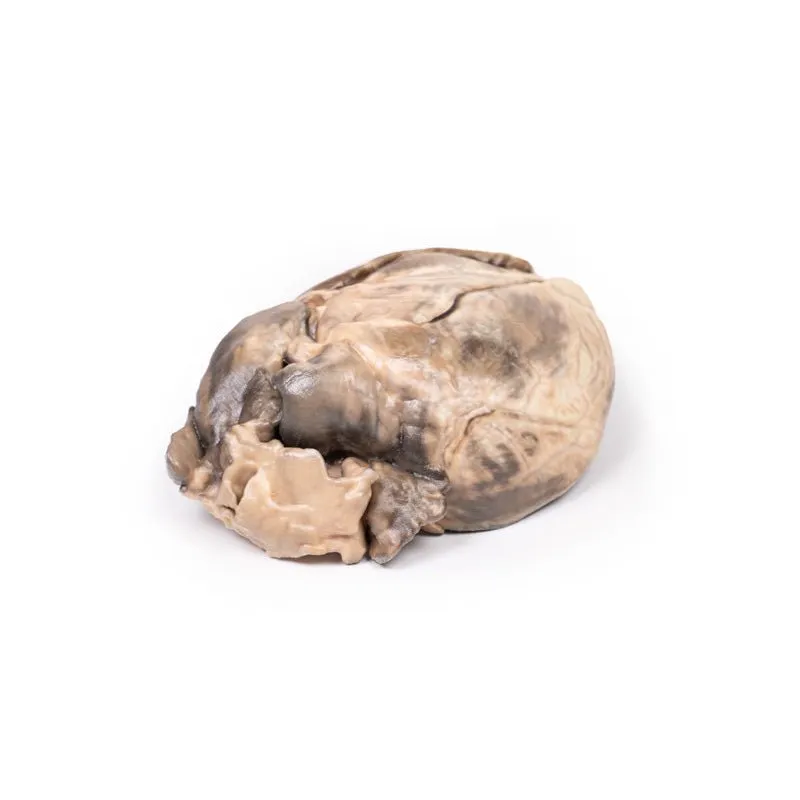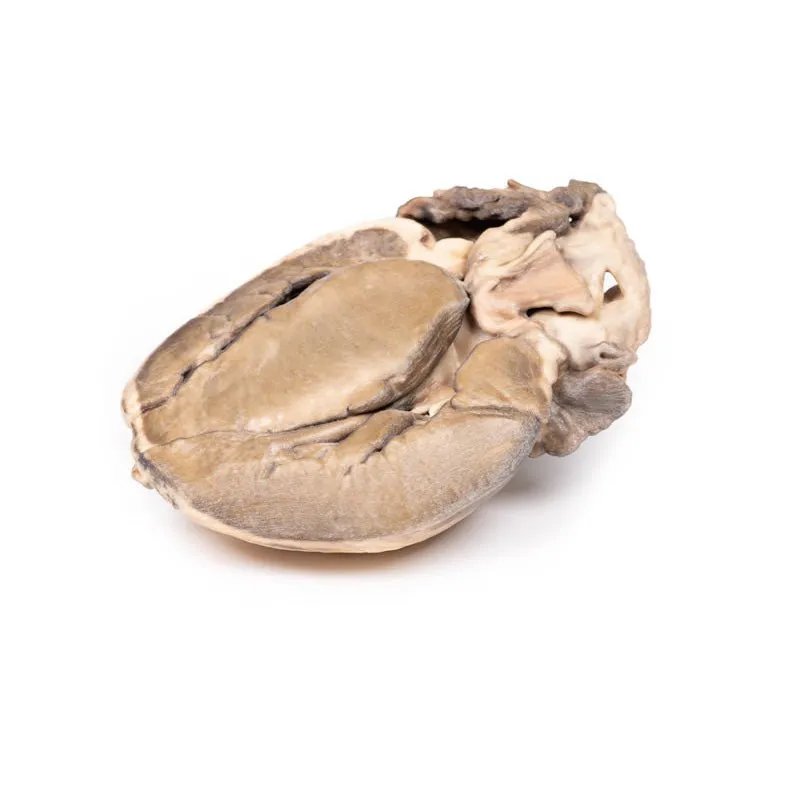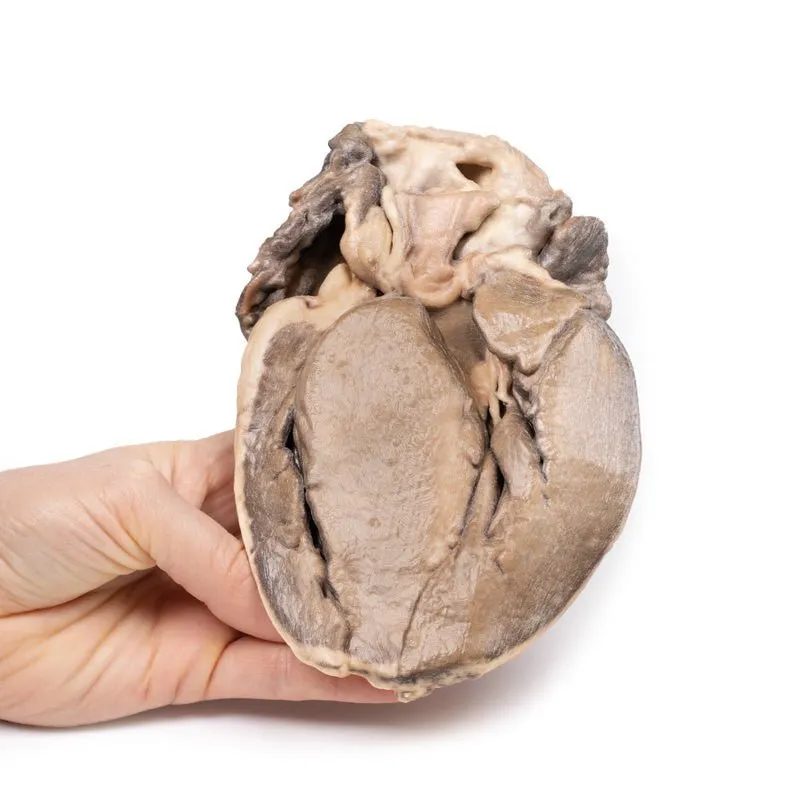3D Printed Hypertrophic Subaortic Stenosis
Clinical History
A thin 42-year-old American tourist was found dead in his hotel bedroom. A coroner’s autopsy
was performed.
Pathology
This is a longitudinal section through the heart displaying the left and right ventricles and
interventricular septum. The outstanding abnormality is a grossly thickened interventricular septum and left
ventricular hypertrophy. The aortic cusps that are visible appear unremarkable, as does the mitral valve. The
ventricular septum is so large that it encroaches on the lumen of the left ventricle.
Diagnosis
Idiopathic hypertrophic subaortic stenosis, also known as hypertrophic cardiomyopathy.
Further Information
Subaortic stenosis is considered to be acquired rather than congenital and is suggested to
result from an underlying defect in the architecture of the left ventricular outflow tract (LVOT). The defect
may be such that the resulting turbulent blood flow leads to progressive thickening and fibrosis of the LVOT and
the aortic valve. Progression of the disease will often lead to a hypertrophic cardiomyopathy secondary to the
increased aortic pressure needed to be overcome by the left ventricle. Mild or moderate stenosis is often
asymptomatic. As disease progresses and the stenosis becomes severe, symptoms such as exertional dyspnoea and
syncope may become apparent. Investigation and subsequent diagnosis are often prompted by the presence of an
ejection systolic murmur on physical examination. Echocardiography is used to confirm diagnosis.
These days,
definitive treatment of subaortic stenosis consists of surgical correction of the obstruction.
GTSimulators by Global Technologies
Erler Zimmer Authorized Dealer

 Cart(
Cart(